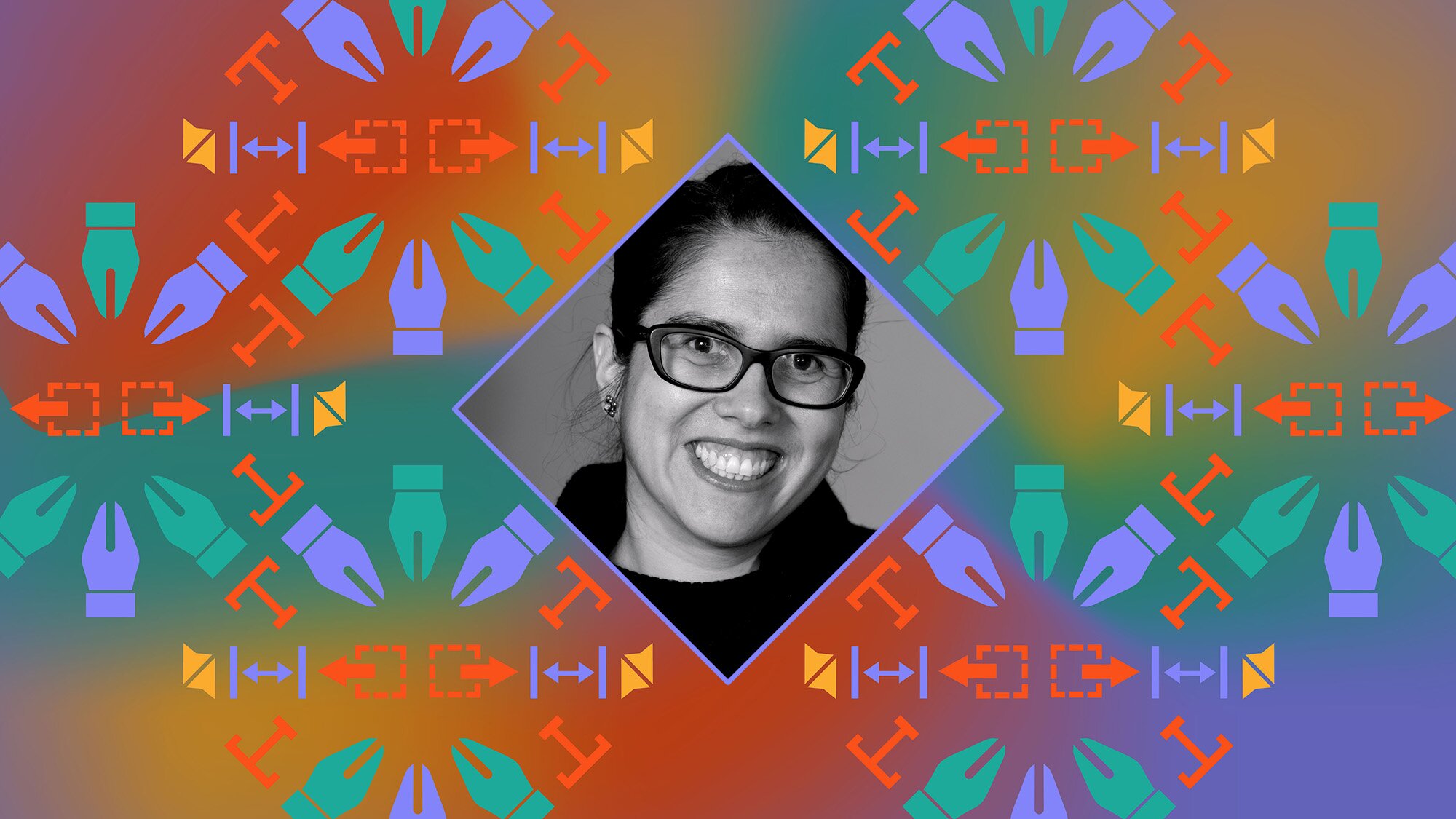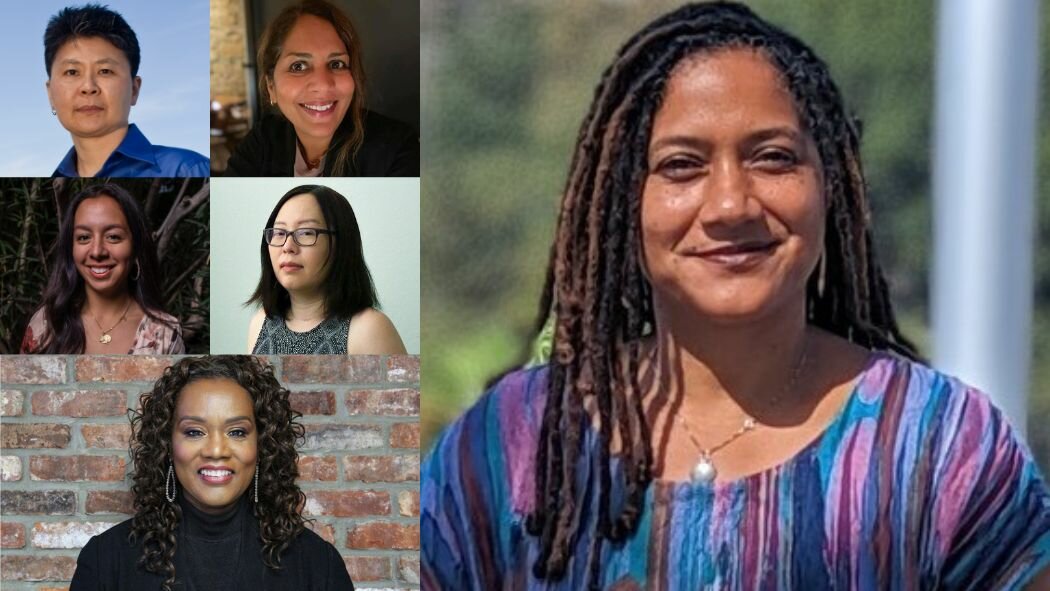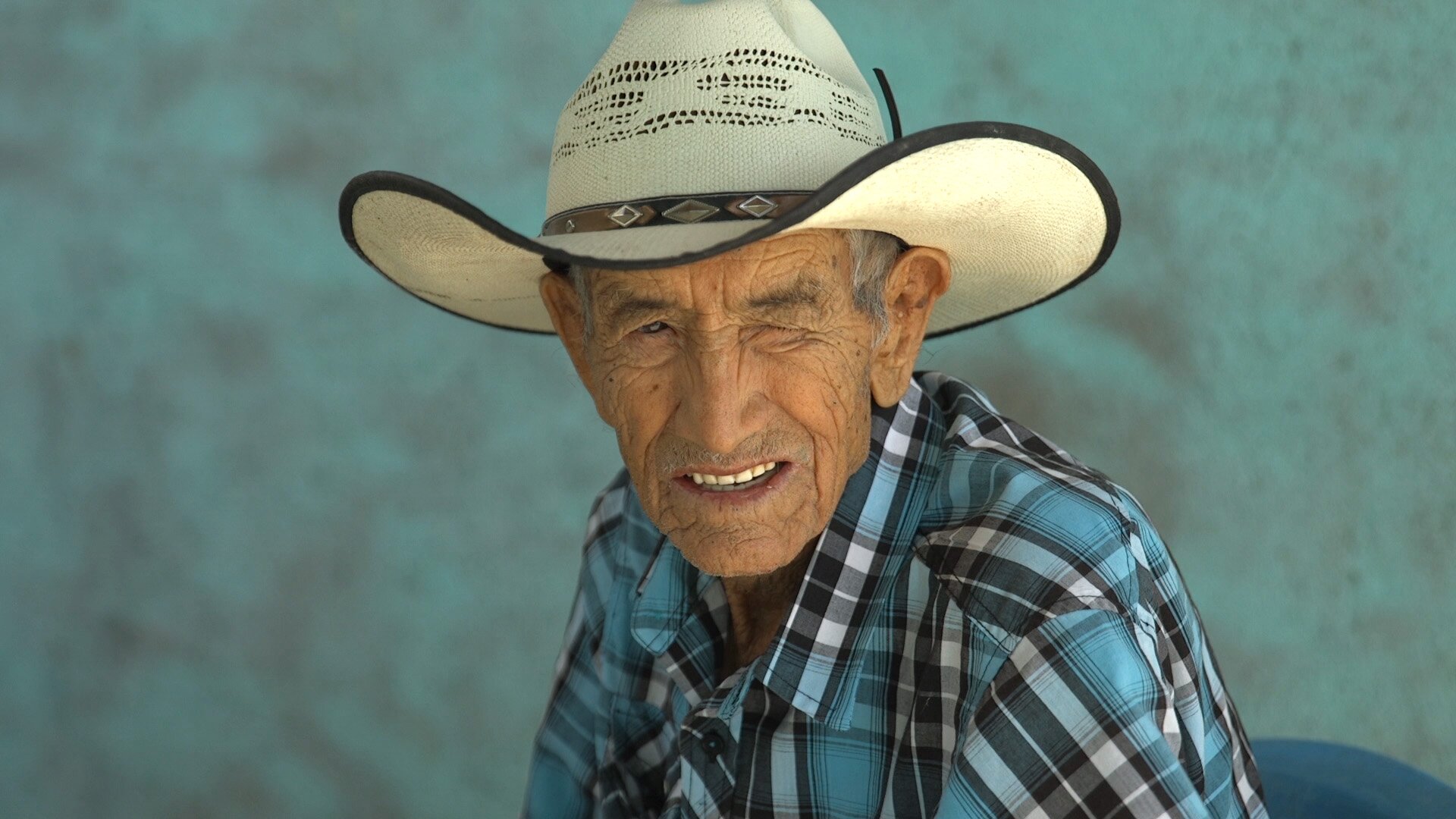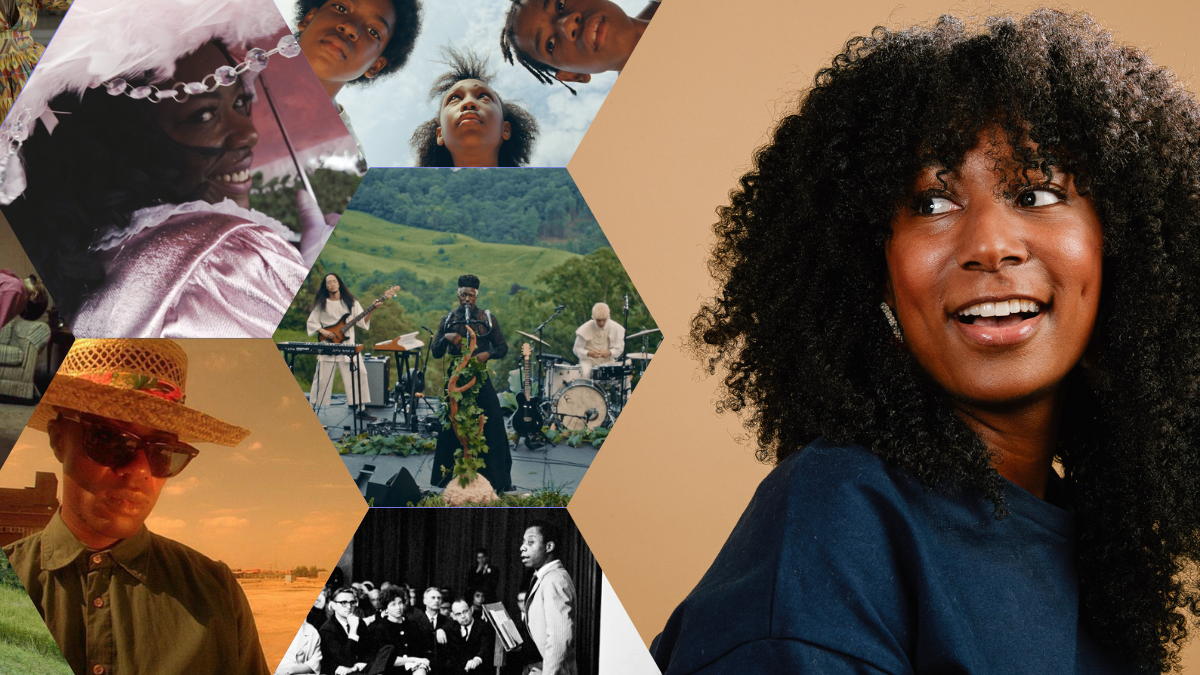

Scroll
Community of BIPOC Women and Non-Binary Professionals Transforming the Documentary Industry
Brown Girls Doc Mafia (BGDM) works to disrupt inequity in the film industry by nurturing, amplifying, and investing in the creative capacity and professional success of our members.
Black History Month
Shining a spotlight on some of our talented Black members working across the industry for Black History Month.
Dessane Lopez-Cassell
Joining BGDM four years ago, Dessane is the Editor-in-Chief of BlackStar’s Seen journal where she platforms film, art, and visual culture writing by and about people of color.
Cora Atkinson
With over 15 years of experience in TV and film, Cora is a producer and filmmaker who has worked with some of the world's top media companies. She has been a member since 2018.
Imani Dennison
A member for seven years, Imani is a multidisciplinary lens-based artist and curator. Their work interrogates histories of Black culture, usually centered in folklore, fantasy, and oral histories.
Opal H. Bennett
A member since 2016, Opal has been a curator and programmer since 2014, joining the teams of major festivals. She is also the Co-Producer of American Documentary at POV
Amanda Jones
A member since 2018, Amanda is an L.A.-based film composer who has created original scores for Ava DuVernay, Issa Rae, Lena Waithe and more.
Alexandra Hannibal
Alex is an established producer and industry executive. She is currently the Vice President of CNN Films, working in content development. She joined BGDM in 2015.
Tamara Shogaolu
Tamara is an award-winning new media artist sharing intersectional stories across mediums and platforms to promote cross-cultural understanding. She joined BGDM in 2017.
Karen Mcmullen
Karen is a Brooklyn based festival curator, educator, and editor. She has programmed for Urbanworld, Tribeca, TIDE, DOC NYC and more. She has been a member since 2016.
Jamila Wignot
Joining BGDM in our first year, Jamila is an award-winning documentary filmmaker. Her work has garnered her Peabodys, Emmy and NAACP awards and nominations.
Stories
Carla Gutierrez Is Paving the Way for BIPOC Documentary Editors
By Alicia Soller • March 30, 2023
Five Unsung Heroes of Documentary Filmmaking
By Sonya Childress • March 28, 2023
Nine Questions with Women in Film's Maikiko James
By Brown Girls Doc Mafia • March 22, 2023
Borders Can't Constrain Family Legacy in ‘What We Leave Behind'
By Jireh Deng • March 17, 2023
Nine Questions with Award-Winning Filmmaker Michèle Stephenson
By Brown Girls Doc Mafia • February 25, 2023
5 Black Films That Changed My Life
By Chelsi Bullard • February 20, 2023
March 6, 2023
BGDM Member Films at SXSW 2023
February 23, 2023
BGDM Films at True/False
February 14, 2023
Welcome to browngirlsdocmafia.org
February 9, 2023
Leveling Up: BGDM Is Now A 501(c)(3) Nonprofit
February 2, 2023
A Snowy, Successful Sundance 2023
January 12, 2023
Meet the Members: Sundance 2023
BLOG
How Strip Chat Couples Build Stronger Bonds in Relationships
Intimacy and connection stand as vital pillars in black relationships, shaped by a legacy of endurance and communal strength. Over time, black couples have creatively sustained their closeness, often against significant societal odds and cultural demands. With the rise of digital tools, couples webcam sex has become a meaningful way to preserve both emotional and physical ties, particularly for those dealing with long-distance challenges or packed schedules prevalent in many black communities. This approach offers a fresh path to tackle stress and past burdens, fostering trust and passionate energy through virtual intimacy.
Trust anchors any lasting bond, carrying extra significance for couples due to historical and social contexts. provide a secure environment where openness can flourish, letting partners share private moments free from criticism. This method acts as a shield against outside pressures, crafting a personal space to focus entirely on one another and rebuild faith in their unity.
Past experiences, like the forced family divisions during slavery or ongoing inequalities, can cast shadows on today’s relationships. Virtual closeness through couples webcam offers a chance to mend these rifts by sustaining nearness, even across distances. For example, a couple split by job demands might use webcam moments to renew their dedication, turning physical absence into an emotional asset.
Is Livestream Sex Bad for Mental Health?
The rise of digital platforms has reshaped how we connect and seek entertainment, with webcam sex emerging as a prominent trend. This type of content involves real-time, interactive adult experiences streamed online, often on platforms where viewers can chat with performers or offer tips. Its growing appeal stems from technology making such personal encounters more reachable, merging the boundaries between imagination and lived experiences. A key concern lingers: what impact does livestream sex have on mental well-being?
Cam sex stands apart from typical adult content by blending technology with direct human exchange, creating unique mental health implications. Unlike static recordings, it fosters a sense of immediate connection as viewers shape the experience through live communication with performers. This setup triggers varied emotional and mental responses, depending on individual habits and perspectives. To grasp these impacts, we must examine how virtual closeness affects feelings, brain responses, and social views.
The brain's reward system plays a significant role in this dynamic. When a viewer receives a tailored response from a performer, it often sparks a release of dopamine, a chemical linked to pleasure. This quick satisfaction can encourage repeated engagement, which may feel thrilling initially but could foster reliance if not managed with care. The real-time nature of sexchat intensifies this cycle compared to other content forms, making its effect on the mind notably strong.
TS self-realization: artistic journeys through different forms of art including live cam
Blogging has emerged as an influential platform for transgender self-expression. Transgender bloggers utilize their personal websites, social media, and online communities to share their stories, insights, and perspectives. By documenting their journeys, discussing challenges, and celebrating milestones, these bloggers foster connection and support within the ts community and contribute to a broader dialogue on gender identity and acceptance.
In recent years, adult entertainment, particularly live cam platforms, has become a space where transgender individuals can reclaim agency over their bodies, desires, and sexual expression in different shows like . Webcam models have the freedom to express their authentic selves, embracing and celebrating their gender identities without judgment. By engaging with viewers through live streaming, tranny individuals on live webcam platforms can connect with others, challenge stereotypes, and promote self-acceptance and empowerment including sex chat.
Unveiling the impact of Brown Girls Doc Mafia: non-binary professionals, tranny sex chat & more
Diversity and representation is important, especially when it comes to the world of filmmaking, and that’s because for a long time, the industry has underrepresented many marginalized voices.
Today, there’s a rising tide of change in that matter, led by organizations like Brown Girls Doc Mafia (BGDM). They’re a dynamic collective dedicated to empowering women and non-binary people of color in the world of documentary filmmaking.
The founder of BGDM, Boyd, who’s a filmmaker of color herself, recognized the importance of creating a safe space for black, indigenous, and people of color (BIPOC) filmmakers to connect and collaborate.








